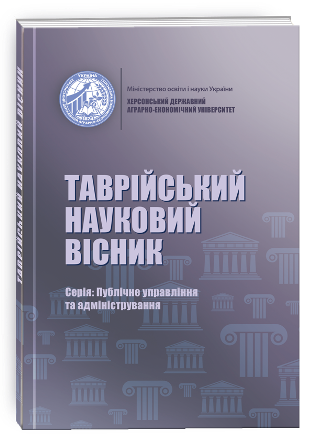POLISH EXPERIENCE IN THE CREATION AND FUNCTIONING OF TOURIST DESTINATION MANAGEMENT ORGANIZATIONS (DMO)
DOI:
https://doi.org/10.32782/tnv-pub.2024.4.7Keywords:
destination management organization, destination, public tourist destination management, regional and local tourist organizations, regional development, tourism destination marketingAbstract
The article examines the issue of public management of tourist destinations on the example of successfully operating models in the countries of the European Union, in Poland. At work analyzes the main components of the three-level system of tourism promotion in Poland, which includes the creation of the National Tourism Organization at the national level and regional and local tourism organizations at the regional level. From 2000 to 2006, 16 Polish voivodships created regional tourism organizations, which today promote the regional brand and tourism products of each region on the domestic and foreign tourism markets. Regional tourism organizations have become an effective model of tourism destination management in the format of a regional DMO. The article analyzes possible reservations regarding the creation and functioning of regional and local tourist organizations. In particular, the formal and legal features of DMO activities (the possibility to carry out both non-profit and commercial activities), as well as structural and organizational features (the creation of organizations in the format of public-private partnership) are indicated, and some financial aspects regarding the formation of DMOs are also analyzed. Based on the analysis of information on the Internet portals of regional organizations for the management of tourist destinations in Great Britain, Lithuania, Germany, Poland, Portugal and the Czech Republic, the study carried out a quantitative analysis of the creation of regional and local tourism organizations in these countries. It was clear that the creation of regional tourism organizations practically coincides with the administrative division of the country into regions. But the number of regional organizations depends on the size of the country’s territory and the place and role of the tourism industry in it. At work, in Poland for example, there are list of tasks and functions of regional and local tourism organizations, and also analyzes the participation of representatives of local authorities in the management of these organizations. Regional and local tourism organizations are autonomous organizations working for the development of tourism in the regions. Control over their activities is carried out, as a rule, by authorized representatives of the regional government, or heads of the local self-government body through participation in supervisory boards, management of the boards of organizations, etc.
References
Pike, S. (2004). Destination Marketing Organisations. Elsevier.
Presenza, A. (2005). The performance of a tourist destination. Who manages the destination? Who plays the audit role? Campobasso, University of Molise, Italy.
Travel & Tourism Development Index 2024 URL: https://www3.weforum.org/docs/WEF_Travel_and_Tourism_Development_Index_2024.pdf (Date of application – 01.10.2024).
M. Kozak. Turystyka: niewykorzystana szansa rozwojowa regionów, „Studia Regionalne i Lokalne” 2020, nr 4 (42), s. 43–59.
Ustawa o Polskiej Organizacji Turystycznej z dnia 25 czerwca 1999 r., Dz.U. nr 62 poz. 689 z późn. zm. URL: https://www.senat.gov.pl/aktualnoscilista/art,7267,20-i-21-maja-1999r-.html (Date of application – 01.10.2024)
Podstawy organizacyjno-prawne regionalnych i lokalnych organizacji turystycznych. Polska Organizacja Turystyczna, Departament Turystyki Ministerstwa Gospodarki, Warszawa 2002
P. Zmyślony, Integracja celów, zasobów i działań na drodze tworzenia podatków turystycznych na szczeblu lokalnym; rola lidera Lokalnych Organizacji Turystycznych / Rocznik Naukowy Wyższej Szkoły Turystyki i Rekreacji im. M. Orłowicza w Warszawie 2007, t. 6.
R. Pawlusiński (2015) Samorząd lokalny a rozwój turystyki. Przykład gmin Wyżyny Krakowsko-Częstochowskiej, Instytut Geografii i Gospodarki Przestrzennej, Uniwersytet Jagielloński, Kraków.
Klimek K. (2023), Destination Management Organisations and their Shift to sustainable tourism development, “European Journal of Tourism, Hospitality and Recreation”, Vol. 4, Issue 2, s. 27–47.
Borzyszkowski, J. & Marczak, M. (2011). Objectives and tasks of national tourism organizations (NTOs): examples of selected European post-communist countries. e-Review of Tourism Research, (eRTR), vol. 9, no. 2, s. 47–64.







